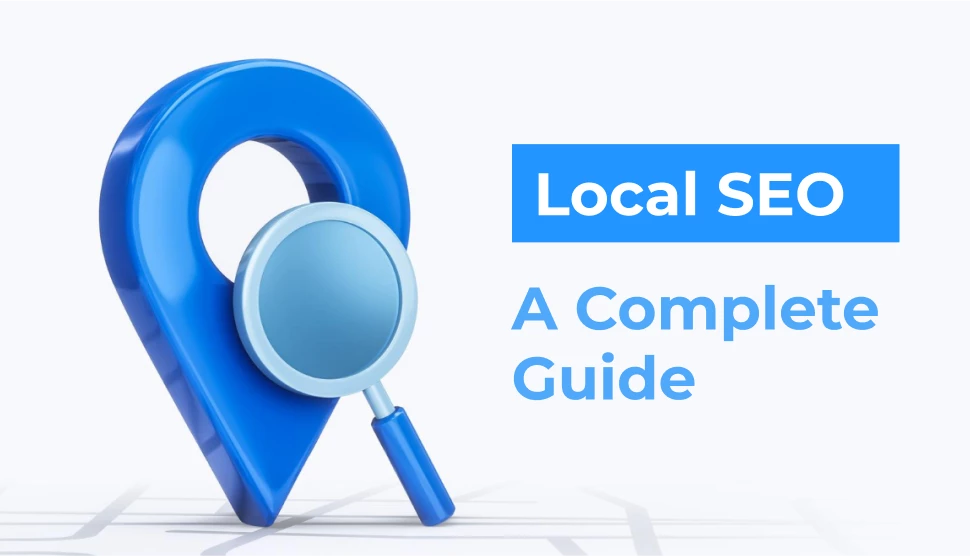Mastering the Art of Perfect Keyword Research
6 mins | Dec 15, 2021

If you are thinking about writing information that reaches target readers, then keywords work like signposts for search engines. It shows them what your website is all about. They're the key to getting more people to visit your site and boosting your online traffic. Planning your perfect keyword research for a website is like having a roadmap to more visitors.
Knowing the right keywords can make a huge difference. It's like speaking the same language as your visitors say. With the same tone, it is helping them find your products or services. That's why looking into keywords is so important. It helps your website stand out and get found more easily.
Keywords also have a significant effect on how well your website does on search engines. If you use the right keywords correctly, your site can appear higher in search results. Researching keywords helps search engines understand what your website is about. People who are looking for what you offer will likely find your site.
It's important to know what you want to achieve with your website and who you want to reach. Keyword search ensures that you can create content that speaks to your audience. So start learning perfect keyword research for a website by understanding keyword research.
2. What is keyword research?
Keywords are the words that people type into search engines when they want to know something. They're like the building blocks of SEO, helping your content show up. When people search for things related to your offer, keywords play the best role. Keyword research is vital to understanding their role in SEO. To find the best keywords, you have deep knowledge of SEO keyword research. SEO keywords act as the root of search engine optimization (SEO). It makes your content visible for crawlers and easy for keyword research analysis. For detailed information, please read our blog - Crafting Connection with Top Formats.
Keywords come in different shapes and sizes, all types you have to identify. Short-tail keywords are brief and general, while long-tail keywords are more detailed. LSI keywords help search engines understand the context of your content better. There are short-tail keywords, which are brief and easy to find. Then, there are long-tail keywords, which are more specific and detailed for content. By learning these different types of keyword research, you can do perfect keyword research for a website.
To select the proper SEO keyword research, you have to understand what people are looking for. Search intent helps you figure out the purpose behind a search. It could be informational, navigational, commercial, or transactional. Knowing this enables you to tailor your content to what people are looking for. Search engine optimization refers to the reason behind a particular search query.
It could be informational, where someone seeks information about a specific topic. A perfect keyword could be navigational when trying to find sure content. It could also be commercial, where someone is interested in buying something but is still in the research phase. Finally, it could be transactional, where someone is ready to make a sale.
3. Why is Keyword Research Important?
Keyword research is vital to improving your content's visibility on search engines. By doing perfect keyword research for a website, you can increase the chances of your website appearing at the top of search results. Keywords make it easier for people to discover your content. There are several key reasons to consider keyword research. One of the primary reasons is that it improves your SEO visibility and ranking on search engines. By applying deep keyword research, you can identify the right keywords for your content. You can improve your website by doing the perfect keyword research for a website.
Choosing the right keywords can help you attract the right people to your website. Keyword research is vital for driving traffic to your website. Successful keyword research helps to improve your conversion rates. By selecting the right keywords that align with your target audience, you can write attractive content. This targeted strategy ensures you reach the right people with your content. So, maximizing the impact of your online content through keyword research is essential.
Keyword research and analysis help you understand what your audience is looking for. By identifying the search intention behind different keywords, you can create the best content. Keyword research helps in understanding user intent.
It allows you to uncover the specific needs, interests, and pain points of your target audience. Also, by analyzing the search volume and competition of different keywords, you can rank your content. Now you know about keywords and their importance in content writing. In the next topic, we cover the step-by-step keyword research guide for perfect keyword research for a website.
4. Step-by-Step Guide to Conducting Keyword Research
Now, you have a firm idea about what a keyword is. But now we have to know about SEO keyword research. How can you do perfect keyword research for a website? In this session, we explore the steps of keyword research analysis. An ideal keyword research strategy was step-by-step for keyword research. Do note down and understand these steps for finding successful keywords.
Identifying the Target Audience and Demographics:
Begin by understanding who your target audience is and what their demographics are—understanding their preferences, behaviors, and preferred terms when searching for products or services. Analyze data such as age, location, interests, and online behavior to create a detailed profile of your ideal customer.
Analyzing Competitors' Keywords and Strategies:
Please look closely at your competitor's websites and the keywords they are targeting. This can provide valuable insights into what's working in your industry. Also, you can find what keywords are driving traffic to their sites. Tools like SEMrush or Ahrefs can help you identify your competitors' top-performing keywords. Also, their entire SEO strategy will provide you with a substantial advantage for keyword research.
Brainstorming and Generating Seed Keywords for the Website:
Start the keyword research process by brainstorming and generating a list of seed keywords. Seed keywords are directly related to your products, services, or content. These seed keywords can be the foundation for further keyword expansion and sedation. Use terms like "keyword research for SEO" or "SEO keyword research" to kickstart your list.
Filtering and Prioritizing the Generated Keywords:
Once you have a comprehensive list of keywords, it's time to filter. Filter them based on relevance, search volume, and competition. Focus on long-tail keywords specific to your niche and have a moderate search volume. Tools like Google Keyword Planner or Moz's can assist you in assessing the right keywords. The competitiveness and search volume of each keyword, allow you to divide those most valuable for your website.
Analyzing Keyword Difficulty and Competition:
Use tools such as SEMrush or Ahrefs to assess the difficulty and competition. Look for keywords with a manageable level of competition, as targeting competitive keywords. Focus on finding a balance between search volume and competition to identify keywords.
Uncovering Long-tail Keywords and Their Benefits:
Long-tail keywords are longer and more specific words to a particular niche. They often need more competition and can attract targeted traffic to your website. Look for long-tail keywords that reflect specific user queries or intents related to your products or services. By using long-tail keywords, you can reach customers who are searching for what you offer. Long-tail keywords can attract users who are further along and have a clearer idea of what they want.
Exploring the Power of Latent Semantic Indexing (LSI) Keywords:
LSI keywords are terms that are related to your primary keywords. They help search engines understand the content and relevance of your writing. LSI helps to improve your website's visibility in search results. Use tools like Google's related searches or LSI Graph to identify LSI keywords. Find and choose the LSI which are relevant to your main keyword. LSI keywords in your content can enhance the depth and accuracy of your website's content. It makes content more valuable to both users and search engines. Including LSI keywords in your content can also help your content for a broader range of related search queries.
By following the steps, you can lay a strong foundation for an effective keyword research strategy. Also, implementing LSI and long-tail keyword techniques helps to reach your audience. You can gain a competitive edge and maximize the effectiveness of your SEO keyword research.
5. How to Integrate Keywords into Website Content
When creating website content, write your content with integrated targeted keywords. Develop high-quality, informative, and engaging content without compromising the readability and user experience. Use the keywords in headings, subheadings, and throughout the body of the content. It highlights search engines the relevance of your website to specific search queries. This is most important for keyword research and analysis.
Optimize your website's meta tags, titles, and descriptions by incorporating your targeted keywords. Crafting meta titles and descriptions that reflect the content of your web pages. While utilizing relevant keywords, make sure it is in all headings. Put keywords in your titles to attract the attention of search engines and visitors. Your meta tags and descriptions are brief, informative, and compelling to boost click-through rates.
Add your targeted keywords to your website's URLs. Add more keywords in internal linking structures to further enhance your website's SEO. Optimize your URLs using descriptive and keyword-rich slugs that indicate the page's content. Use anchor text that also includes your targeted keywords. This helps to create a precise sequence of pertinent information to your website's content for search engines. You were placing your targeted keywords into your website's content and structure. You can boost your website's visibility and improve its search engine rankings by adding the right keywords.
6. Keyword Research for Different Types of Websites
For perfect keyword research for a website, you have to know about the type of website. It involves choosing the most relevant and high-performing keywords that can drive organic traffic to a website.
The approach to research and the keyword research process may vary depending on the type of website. For e-commerce websites, it is necessary to focus on product-specific keywords. Choose SEO keywords that align with customers' search intent. Content-based websites should focus on long-tail keywords. Long-tail keywords help them look for detailed information or solutions to specific problems.
E-commerce Websites:
For e-commerce websites, focusing on product-specific keywords is essential. Research the specific products you offer. Find target keywords that align with their features, benefits, and use cases. Include descriptors such as brand names, product models, and relevant attributes. It helps to capture the attention of potential buyers. Consider incorporating transactional keywords that show a user's intent to make a sale. For example, "buy now" or "best price" to drive more qualified leads to your online store.
Blogging Websites:
Focus on content-driven keyword strategies that revolve around topics your target audience. Conduct deep research on trending topics, FAQs, and widespread industry discussions. Target long-tail keywords that address specific pain points. It provides valuable insights to your readers about your content. Incorporate informational keywords that cater to users looking for educational content. Regularly optimize your blog posts to provide comprehensive and valuable information.
Service-based Websites:
For service-based websites, aligning keywords with the specific services offered is key. Conduct in-depth research on the types of services you provide. Identify keywords that reflect the unique solutions you offer to your target audience. Include location-specific keywords if your services relate to a specific geographic area. It helps your content appear in local search results. Focus on transactional keywords that dictate a user's readiness to engage with your services. For example, "hire now" or "consultation request" to drive qualified leads and conversions.
These keyword research strategies help to find specific needs and objectives of your content. You can optimize your online presence and improve your website's visibility by choosing the right keywords in content. Also, perfect keywords help drive more relevant traffic and increase your conversion rates. This is the first key to doing perfect keyword research for a website.
7. Common Mistakes to Avoid in Keyword Research
One common mistake is underestimating the significance of long-tail and LSI keywords. Focusing on short-tail keywords can limit your reach, as long-tail keywords often attract more audiences. Likewise, LSI keywords help search engines understand the context of your content better. It only brings improved visibility and relevance in the search for an audience.
Irregular updates to your keyword strategy can affect your website's performance over time. Search trends and user behaviors evolve, and what worked well in the past may yield different results. Review and update your keyword strategy to align with the latest search algorithms.
Focusing on more than high-volume keywords and assessing relevance also affects your content. You need to evaluate their applicability to your content and target audience to make it a mistake. Make sure that the keywords you target align closely with your website and your audience. Concentrate on quality over quantity, and focus on keywords that are not only popular.
You can upgrade your strategy, reach a more targeted audience, and improve your website with good keywords. You were incorporating long-tail and LSI keywords and conducting timely audits and updates.
6. Conclusion
It's important to understand that keyword research strategies are not static. They must adapt to changing search algorithms, user behaviors, and industry trends. Stay updated with the latest developments in SEO and keyword research. Test different keyword variations, analyze the outcomes, and make adjustments to your strategy. Keep an eye on growing trends and be willing to explore new techniques and tools to stay ahead of the competition. Always prepare yourself to maintain the power of your keyword research efforts.
Successful keyword research is not a one-time task but an ongoing process. Keyword research requires continuous attention, adaptability, and innovation. You can stay one step ahead of the competition and optimize your keyword research strategies for the best possible outcomes. This dedication to constant improvement helps your website rank higher.
Author






